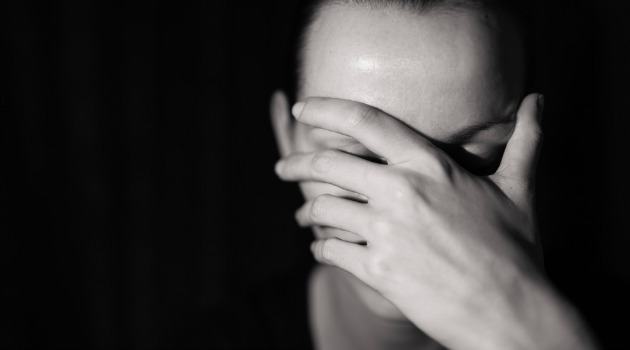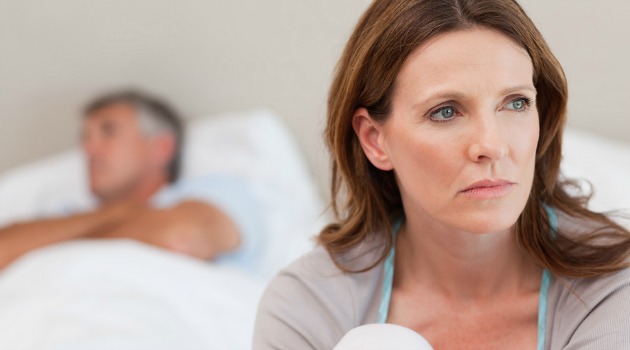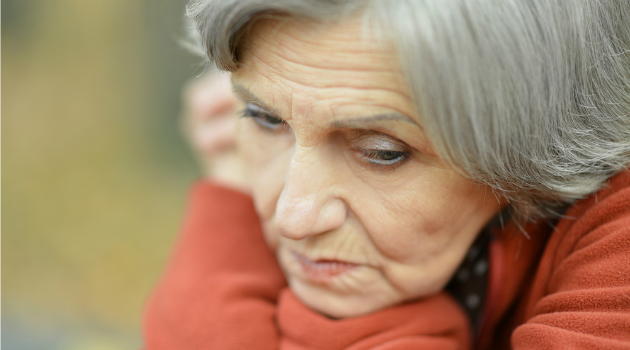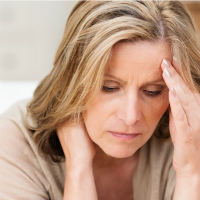Passports not in the drawer I always keep them in. Turning the place upside down.

How to deal with depression

According to the Royal College of Psychiatrists, depression affects one in five older adults in the UK. It can be mild, moderate or severe, and the effects can be incredibly difficult to cope with. So whether you are suffering from (or have ever suffered from) depression or have a family member or a friend who may need support, we've compiled some vital information on how to recognise the signs and symptoms and how to seek the right help and treatment should you need it.
What is depression? | What types of depression could typically affect over 50s? | What are the causes of depression? | What are the symptoms? | How can you seek help? | Treatment for depression
Sign up to Gransnet for more health advice
What is depression?
Everyone feels down from time to time, but clinical depression is a prolonged feeling of sadness that can last for weeks or even months. It does, essentially, leave you in a continual low mood, and while it may not stop you from living life as you usually would, it may make everything that little bit more difficult. In its worst form, it can be life-threatening. According to the NHS, you are more likely to suffer from depression the older you are.
Gransnetters say:
"It is important to remember that depression is an illness. Just because other people can't see it doesn't make it any less corrosive than, say, cancer (and I am a cancer survivor!)."
What types of depression could typically affect over 50s?
Depression itself can be a symptom of other conditions, and while it cannot be categorised fully (if at all), types can include but are not limited to:
- Clinical depression - feeling persistently sad for weeks or months
- Bipolar disorder (formerly known as manic depression) - a mixture of depression and mania
- Seasonal affective disorder (SAD) - depression usually related to winter
- Dysthymia (sometimes referred to as chronic depression) - less severe, in terms of symptoms, than clinical depression
- Atypical depression - depression with atypical features
- Psychotic depression - severe clinical depression with episodes of psychosis
Here we're focusing specifically on clinical depression, but if you need further information on any of the above, please consult your GP.
What are the causes of depression?

Depression can be caused by a number of different emotional, physical or environmental factors, and while a potential cause may be difficult to identify, this will help when seeking treatment. Causes may include:
Physical health problems
Your physical health can have a huge impact on your mood, especially when it comes to life-threatening illnesses and other conditions that significantly change your life, such as cancer, arthritis, dementia, Parkinson's disease and even menopause.
Gransnetters say:
"Menopause can make things seem worse...even insufferable."
Life events
Traumatic or stressful life events may also be a contributing factor. These may include:
- Bereavement and grief (although it should be noted that while grief shares many of the same characteristics as depression, grief is not an illness)
- Physical or sexual assault
- Unemployment
- Bankruptcy or financial difficulties
- Losing your job
- Changing your job
- Retirement
- Moving house or losing your house
- Divorce or the end of a relationship
- Estrangement with family and/or friends
- Loneliness and a lack of social engagement (especially after the death of a partner or spouse)
Gransnetters say:
"I think that if I didn't have my husband I would be lonely. I do worry about the future sometimes."
Diet and exercise
Not following a regular routine when it comes to food can produce a change in mood, and missing meals or not eating enough can lower your blood sugar levels, which may make you feel irritable, tired or depressed. A lack of exercise can also affect your mental wellbeing. Incorporating regular exercise into your day-to-day life when you can will heighten feelings of happiness and contentment through a release of endorphins.
Medication, drugs and alcohol
Some medication can have negative side effects on your mental health, often promoting feelings of anxiety and depression. The effects of certain medication does, of course, differ from individual to individual, but if you are worried about the side effects of any prescribed medication that you may be taking, be sure to consult your GP.
Both legal drugs (this includes caffeine, alcohol and nicotine in addition to prescribed medication) and illegal drugs can affect temperament and mood depending on what they are and how often you consume them (see more information here).
Genetics
Your genes can play a part in determining whether or not you suffer from depression. According to the NHS, if it runs in your family, you are more vulnerable to developing the illness. It may be worth approaching your GP about this if you are concerned (or are experiencing severe changes in mood) as they will be able to offer information and support.
Gransnetters say:
"I am caught up in a family jinxed with the depression gene: husband and daughter. The problem is trying to be positive, calm and supportive all of the time."
Childhood experiences
Negative childhood experiences or traumatic events, no matter how big or small, can have a huge impact on your psychological wellbeing and how you cope with different emotions and challenging situations. This can ultimately lead to depression later in life. These experiences could include:
- Neglect
- An unstable family or living situation
- Physical, sexual or emotional abuse
Other mental health issues and disorders
Anxiety, stress, post-traumatic stress disorder (PTSD), eating disorders and insomnia are just a few mental health issues and disorders that may trigger depression.
Gransnetters say:
"Stress is definitely a cause of depression. Even the positive stress of a family wedding can knock things out of kilter."
Get the latest health tips and more delivered straight to your inbox...
What are the symptoms?

The symptoms of depression (ranging from mild to severe) may manifest themselves in different ways depending on the individual, which can make them difficult to recognise. Recognising the symptoms of depression is, however, the first step towards getting treatment. Some of the most common symptoms include:
Physical symptoms
- Tiredness and disrupted sleep
- Lack of energy
- Moving or speaking slower than usual
- Change in appetite
- Change in weight (usually, but not always, a decrease in weight)
- Change in menstrual cycle (if you've not yet reached menopause)
- Constipation
- Aches and pains
- Lack of libido
Psychological symptoms
- Irritability and restlessness
- Anxiety, worry or panic
- Feelings of self-loathing and despair
- Feelings of hopelessness and helplessness
- Low self-esteem
- Feeling tearful
- Continual sadness and low mood
- Feeling guilt-ridden
- Indecisiveness
- Self-harming (or thoughts of self-harming)
- Suicidal thoughts (or suicidal behaviour)
Social symptoms
- A lack of enthusiasm for life, work and things you previously enjoyed doing
- Reclusiveness and isolation
- Taking part in fewer social activities
- Avoiding contact with friends and/or family
- Inability to relate to other people
- Experiencing difficulties at home
The symptoms of depression can be quite complex. They often come on gradually, which means that they may initially be difficult to notice (especially as unhappiness, stress and anxiety are common during difficult periods of life), taken more lightly than they should be, mistaken for something else or even linked to other health issues.
Gransnetters say:
"I went through a time when I used to get awful panic attacks. I remember that feeling so well, and it was as if I was going to die."
"I get so cross and sad and hurt. I just want to eat something, but I am very overweight and constantly trying to control my eating. I just seem to go round in circles."
How can you seek help?
Talk to your GP and get a diagnosis

If you think you (or a loved one) might have depression, you have already made one important step by recognising that there is something wrong. The next thing to do is to make an appointment with your GP, who will examine you, ask you a variety of questions about your health (be as open and honest as possible when you answer) and make sure that is may not be another condition with similar symptoms. Once diagnosis has occurred (your GP will differentiate between mild, moderate and severe depression), they will talk you through what treatment options are available.
Gransnetters say:
"Write down a list of how you feel and the way that it affects your life, and refer to the list when you are at the doctor's. Explain how you were before and how you are now."
Other professional support
As well as visiting your GP, there are a wealth of organisations in the UK that can offer you support and advice. Here are our recommended websites:
- NHS - they have various pages on depression, including diagnosis and treatment
- Mind - the leading UK mental health charity
- Relate - the relationship support service for older people
Gransnet support
There is no substitute for professional help, but talking about your worries and feelings to your peers can be of valuable help.
Gransnetters say:
"One of the best things about Gransnet is how you can 'talk' to others about how you feel and they will respond and offer support and advice."
"On my days off, as I'm lying in bed not wanting to get up, the thing that gets me up is the 'I'll just turn the computer on and see what's happening on Gransnet.'"
"It makes me feel like I'm not on my own."
Treatment for depression
Treatment options recommended by your GP will always depend upon your diagnosis (and the severity of the illness). If at any time you are feeling better, it is important that you discuss whether you should continue your treatment with your doctor.
Therapies
Talking is a very effective way of working through the illness and is one of the most popular forms of treatment within the NHS. Talking therapies include:
- Simply talking to a friend or relative
- Local self-help groups/guided self-help - also for peer support
- Counselling
- Psychotherapy - explores the connection between depression and past events
- Behavioural activation - encourages positive behaviour through such things as activity planning
- Cognitive behavioural therapy (CBT) - helps to change negative thought patterns and improve states of mind (can also be undertaken in groups)
- Interpersonal therapy - helps those suffering from depression to identify and address relationship and/or family issues
- Electroconvulsive therapy - only used in very extreme cases, particularly if the situation is life-threatening
Gransnetters say:
"It often helps to talk to a trained person who is not already involved in your life. Cognitive behavioural therapy is very good."
"You learn strategies to cope... The sessions allowed me to realise that I was far from alone and that many folks go through this."
Other treatments
These are usually recommended if depression is more mild in form:
- Watchful waiting - the 'wait and see' approach that allows a GP to monitor progress in short stages
- Mindfulness
- Ecotherapy - incorporates outdoor activity into treatment
- Physical activity programmes - specifically created for people with depression
Medication
When depression is moderate to severe, your GP may prescribe you with antidepressants, normally alongside counselling. If you have mild depression, your doctor will recommend that you try one of the many talking therapies available before resorting to medication.
Antidepressants help to reduce the symptoms of depression by increasing the levels of serotonin (the 'happy hormone') in the body. There are, however, side effects to taking these drugs which your doctor will talk you through - they are not always effective for everyone. You will receive regular check-ups to see how you are responding to the treatment, and courses are normally prescribed for a minimum of six months.
Gransnetters say:
"I was prescribed antidepressants. After six weeks, I began to enjoy (as opposed to dread) waking up to a new day."
Disclaimer: The information on our health pages is only intended as an informal guide and should not be treated as a substitute for medical advice. Gransnet would urge you to consult your GP before you begin any diet if you're concerned about your weight, have existing health conditions and/or are taking medication.
Images: Shutterstock


